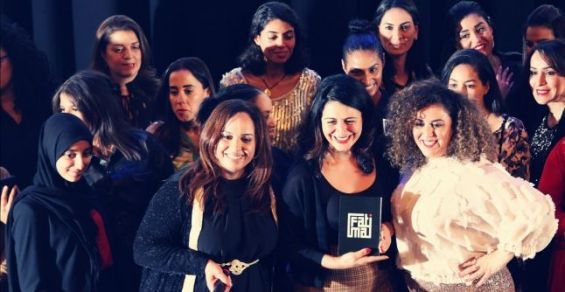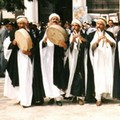To Raja Felgata, an Amsterdam-based media entrepreneur, empowering the female members of the Moroccan community is a must.
Born in Amsterdam to Moroccan parents who left the Kingdom to work in the Netherlands by the end of the 1960s, Raja was one of the first Dutch-Moroccan women to work as a news anchor.
Fascinated by journalism from an early age, Raja worked as a journalist, columnist, producer and director in the Dutch media industry for around twenty years. But being a woman of color in the industry was not that easy.
«It was a challenge for me to work in the Dutch media», Raja said, citing the prejudices and stereotypes often associated to her Moroccan background. «Throughout my work in journalism I wanted to make a change regarding how media pictured the Moroccan community», she recalled.

But as she said, Raja was determined to fight back, honoring her roots and changing the negative «media imaging» related to her community. Her plans were still on her to-do list even after she decided to «stop calling [herself] a journalist».
Media to empower people of color
As a media entrepreneur, the Amsterdammer is creating content to empower people of color in the Netherlands, through storytelling. The initiative focuses mainly on the Dutch-Moroccan community and women in particular.
«I believe that creativity and storytelling is the right solution for the current situation of Muslims and Moroccans living in Europe», Raja suggests, referring to racism and discrimination that these communities face when represented in media.
Indeed, through her media company, Raja produces and creates stories about people of color in the Netherlands to showcase their talents and put their know-how forward in media. Based on diversity and inclusiveness, Raja compiles a list that ranks the top 100 people of color in the Netherlands in an attempt to «influence and inspire media companies about the talents that exist outside their usual networks», she explained.
A female migration story
Her recent project goes hand in hand with the vision of her work as a media entrepreneur. In fact, Raja and her partner Fatimzahra Baba, a fellow Moroccan-Dutch, launched earlier this year a movement called FATIMA.
The latter is meant to celebrate Moroccans’ 50 years of migration in the Netherlands in a unique way and, at the same time, change the prejudices linked to Moroccan women in the Netherlands, including those who bear the same name .

«We wanted to celebrate the female version of this event. It is always about men whenever we talk about the story of Moroccan migration in the Netherlands», said Raja, who was the creative director of FATIMA, photographing the 50 women.
And so it was. When they met earlier this year, Fatimzahra and Raja decided to bring the stories of 50 Moroccan-Dutch women to the surface, calling them all Fatimas. They thought of the name Fatima because it is the most common one within the Moroccan community in the country.
«We thought of the name Fatima because everyone in the Netherlands knows someone called Fatima (…) She could be your cousin, mother, daughter, colleague or friend», Raja said. Fatimas are also entrepreneurs, actors, singers, journalists, students who dream of becoming prime ministers, she added.
But the FATIMA initiative is also about breaking up with the negative ideas associated with this name. «We brought women from the first, second, third and fourth generation. The youngest Fatima is 9 years old and the oldest is almost 70», she proudly told Yabiladi.
Through FATIMA, these Moroccan-Dutch women tell their stories and how they have contributed to the Dutch community and to this 50-year-old migration story.

But to Raja, the movement is the start of a bigger project as she is planning to broaden the initiative with her partner. «We received positive feedback after we launched and we are planning to make it bigger (…) maybe touring with these women in a theater», she exclusively told Yabiladi.
«People were also happy to see that Fatima is not always that suppressed veiled woman», Raja said, hoping to create a similar movement in her home country.





 chargement...
chargement...













